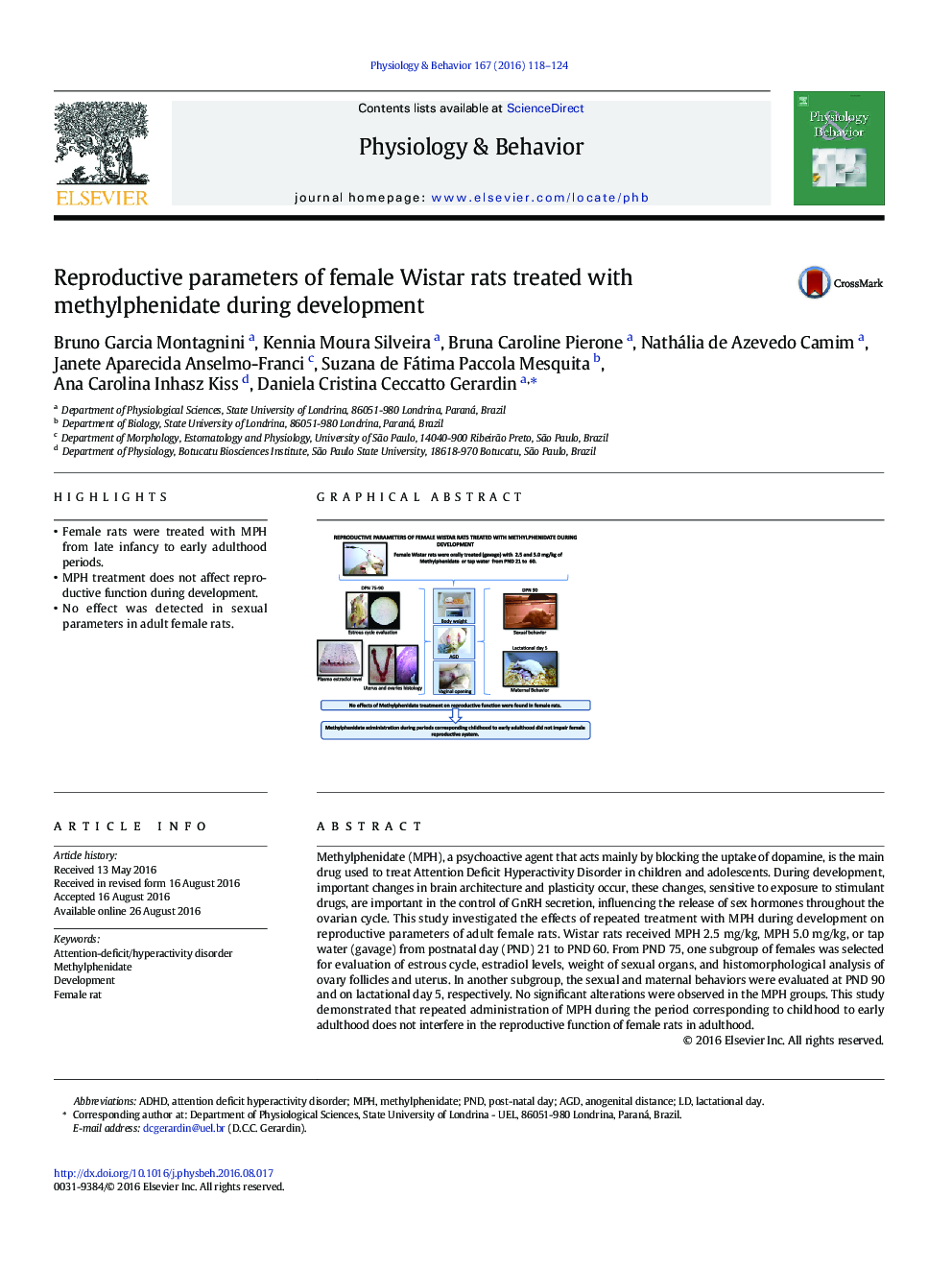| Article ID | Journal | Published Year | Pages | File Type |
|---|---|---|---|---|
| 5922488 | Physiology & Behavior | 2016 | 7 Pages |
â¢Female rats were treated with MPH from late infancy to early adulthood periods.â¢MPH treatment does not affect reproductive function during development.â¢No effect was detected in sexual parameters in adult female rats.
Methylphenidate (MPH), a psychoactive agent that acts mainly by blocking the uptake of dopamine, is the main drug used to treat Attention Deficit Hyperactivity Disorder in children and adolescents. During development, important changes in brain architecture and plasticity occur, these changes, sensitive to exposure to stimulant drugs, are important in the control of GnRH secretion, influencing the release of sex hormones throughout the ovarian cycle. This study investigated the effects of repeated treatment with MPH during development on reproductive parameters of adult female rats. Wistar rats received MPH 2.5Â mg/kg, MPH 5.0Â mg/kg, or tap water (gavage) from postnatal day (PND) 21 to PND 60. From PND 75, one subgroup of females was selected for evaluation of estrous cycle, estradiol levels, weight of sexual organs, and histomorphological analysis of ovary follicles and uterus. In another subgroup, the sexual and maternal behaviors were evaluated at PND 90 and on lactational day 5, respectively. No significant alterations were observed in the MPH groups. This study demonstrated that repeated administration of MPH during the period corresponding to childhood to early adulthood does not interfere in the reproductive function of female rats in adulthood.
Graphical abstractDownload full-size image
